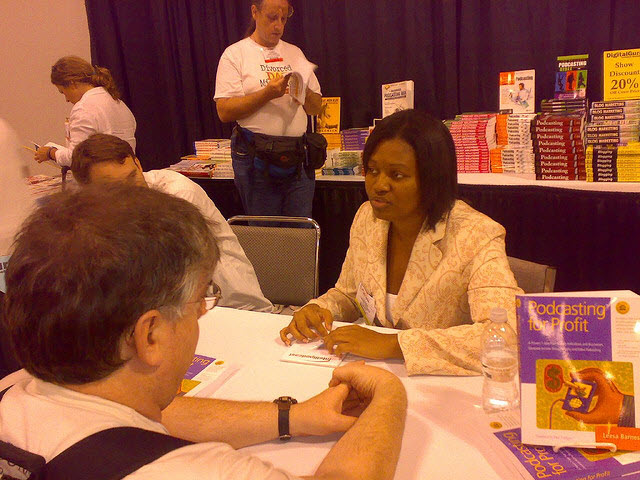I was on a client website this morning and saw the following sentence on their contact us page:
“Our Down-to-Earth Team Operates as a Partner, Not a Vendor.”
I thought about this after getting off the phone with a client (not the one related to the website mentioned above) who’s not happy with my service. It’s the first complaint I’ve had to deal with in 12-months. She was unhappy that she didn’t get any responses to her podcast and she felt that the podcast wasn’t a good use of her time or money.
The package she had with my company was simply to take her raw files, edit and mix it, save as an MP3, post to her podpage and then wait for the next set of raw files the following week.
That’s not what happened. When my team sent an email to her assistant saying that the podcast is ready, the assistant needed us to write up some copy that she could send to her ezine list. That was not part of the package.
Then, my client needed me to be her host on a couple of the episodes. That too was not part of the package. My client also needed to know ways to make money so she could offset her costs. Again, not part of the package.
Unfortunately, she paid for production services only. Just edit and mix the audio file, then post to her podpage. In other words, my relationship with her was that of a vendor. However, what this client needed was someone to strategize with her, give her tips, hold her hand every step of the way. In other words, she needed a partner.
This has definitely changed the way I approach podcasting solutions. If someone just wants me to edit their file, I send them directly to the person who does it for me. I no longer want to work with these type of people.
Why? Because I want to develop case studies. I want to help people who consider themselves disrupters to use podcasting to disrupt their industry. I want to hold their hand from beginning to the end. I don’t want to just manage a piece of the puzzle, I want to manage the entire thing.
Although my client is now happy that I resolved her problem, she’s given up on audio podcasting. A great example of a service that was poorly designed for this client’s needs. However, she now wants to move into video podcasting and I gave her a list of video podcasters to speak to so she understands what she’s getting into. If anything, the audio podcasting has made her a bit wiser so she knows what type of questions to ask a podcasting consultant in the future.
On my end, I have now discontinued the service and have rejigged my offerings so that I treat every individual and business as a partner in their podcast strategy.
And what about you? Are you a vendor or a partner in your client’s podcast strategy?


Timely post! My team was just having this discussion a couple days ago. Thanks!
Don’t cha hate when you pour all this work into a solution and they don’t implement it? That’s why I get all the cheques up front. If they paid for it, then I don’t worry.
Yet, I still want those case studies. I want to brag about the client who selected a staff pick in iTunes (oh, wait a minute, that did happen). I want to toot my own horn about the client that was featured in the What’s New section of iTunes after only his third episode (oops, that happened too).
I want to help my clients go beyond their own expectations and see the tangible results of using a podcast. So while the money is good, the results are better.
In every client strategy, I try to not only be a partner but also a reflection of myself in that: “am I treating this person the way I would want to be treated?”
Many times, that includes offering marketing consultation ideas that are certainly not part of my audio services but because I know that my audio will (or should anyway) be part of a bigger marketing strategy, I offer conversational tips that I know will benefit the client’s big picture plans…even if THEY aren’t sure what the big picture is. They usually greatly appreciate it and it doesn’t take any time from my day really.
The challenge I find is when I understand the client’s problems, as they have been explained to me by them, and they cannot grasp the marketing solution I have provided or even worse, won’t take the time to implement the strategy (we’re talking simple stuff usually). Its hard to see someone step off the curb into the path of a Mack truck, offer your hand to pull them to safety only to have that hand brushed away, thus watching the inventible play out.
Oh well, I really did try!
Best always,
-Peter